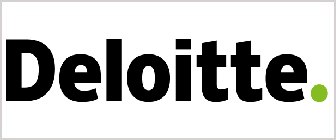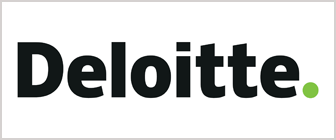Christine Wolter answers questions about Germany's recent legislative changes
1. What is the most significant change to your region/jurisdiction’s tax legislation in the past 12 months?
As an international corporate tax practitioner, the most important legislative changes that I presently note in Deloitte Germany’s daily practice are the Base Erosion Profit Shifting (BEPS) driven amendments of local tax laws, as well as subsequent ATAD (Anti-Tax Avoidance Directives) and Pillars I and II developments. Individual local cash tax planning initiatives seem to be constantly decreasingin particular, in lieu of BEPS discussions across jurisdictions. In this context, business purpose tests and proof of relevant local business substance requirements have become specific focus areas of German tax authorities. Likewise, creation of a new nexus for digital services/IP transactions in Germany is an important topic in Deloitte’s current tax practice. However, in today’s environment there remains a focus on the effective tax rate of organisations, i.e. current and deferred taxes on a global basis.
2. How do you anticipate that change impacting your work and the market moving forwards?
The disruptive element of change will surely create new business opportunities for tax practitioners. In today’s tax environment, however, a more holistic understanding of value chains, underlying industry focus and business models is required. We (Deloitte Germany) need to listen very carefully to our clients and be agile and think out-of-the-box when striving for tax solutions in changing business environments moving forwards. I strongly believe that taxes will have to be embedded into operating business decisions even stronger. In my view, the future tax advisors will be the ones who closely partner with clients as their trusted advisors and build bridges in the triangle of finance transformation/management controlling, IT environment and tax related processes.
3. What impact do you see the COVID-19 pandemic having on your work directly and on the wider tax environment, in both the short and long term?
The COVID-19 global disruption has proven that we professionals were able to change our way of working within a short timeframe, both internally within our teams and externally with our clients and tax authorities. There are great technology-based developments to accommodate this, e.g. collaboration platforms to exchange information and data, real-time analytics, etc. These solutions appear to be much more appreciated and accepted nowadays than they were six months ago. Everybody is currently making the effort to really move topics forward and get things done. Technology does not replace the atmosphere of a personal meeting. Nevertheless, it does enable professionals to strive for more efficiency in information gathering, streamline processes and effectively collaborating in real time on one document with several people from various places. In a nutshell, the COVID-19 pandemic-related changes of our work environment have largely broadened our methodologies and processes of daily tax work for everybody’s benefit.
With regard to the wider tax environment, the COVID-19 global disruption has shown that supply chain security could not be implemented in certain business models. In a long-term perspective, it can be expected that multinationals will carefully align their value chains in order to determine operational readiness of their procurement, production and distribution channels. This will include the necessity of sophisticated international tax structuring regarding the transfer of functions upon setting up such new business models.
4. Given the likely long-term implications of COVID-19 on things like remote working and digital retail, how do you see tax technology developing to accommodate this new reality and where do you think the next area of focus might be?
Actually, I do not believe that the COVID-19 pandemic will specifically lead to development of plenty of new tools to accommodate this new reality, since a wide range of technology-based solutions is already available. The new normal of our daily work environment does require a change in mindset of tax practitioners in general, however. We need to give up long-year work patterns and foster applying tax technology embedded solutions more broadly. Likewise, the application of tax tools will allow tax practitioners to achieve more efficiency and reliance in generating and processing tax-relevant information on larger scale and, on top of that, allow for a more holistic view on tax positions in general. Responsibility for international tax positions will need to be reflected very carefully under these new circumstances, giving up common responsibilities.
5. What potential other legislative changes are on the horizon that you think will have a big impact on your region/jurisdiction?
In March 2020, the German Ministry of Finance issued an amended draft bill for changing the German Foreign Tax Act, including taxation of controlled-foreign companies (CFC taxation).
German outbound multinationals are subject to CFC taxation given that they generate certain types of supposed low taxed passive income, in particular, income from sales or trading if such goods were received from a German parent or affiliate, interest income, royalties, as well as certain types of taxable income from restructurings. Likewise, German CFC rules also affect non-German multinationals holding significant non-German operations under a German entity or a German permanent establishment. The threshold of low taxation is currently still set at 25%.
Based on the proposed regulations, scope of CFC taxation shall be increased even further, whereas the threshold of low taxation shall remain unchanged and credit of foreign taxes is limited to 15% corporate income taxes only (no tax credit available for municipal trade tax purposes), hence, leading to effective double taxation.
6. What are the potential outcomes that might occur if those changes are implemented?
German and non-German multinationals will have to review value chains and operating business models very carefully in order to avoid any unintended tax leakage resulting from German CFC exposure. This holds particularly true in case the COVID-19 crisis forces German multinationals to carry out internal restructurings in the short term in order to streamline business operations.
Amendments of German CFC taxation are likely to be applicable from FY 2021.
7. Do you think that change will have a positive effect on both your practice and the wider regional/jurisdictional market?
Unfortunately, the German CFC taxation regime is likely to be a fundamental disadvantage to multinationals in many cases. Applicable local statutory tax rates of the vast majority of EU (European Union)/EEA (European Economic Area) member states and non-European countries are below 25%. Business substance relief for CFC purposes remains to be solely available for EU/EEA member states.
Following the recent discussions in German expert tax literature, my strong ask would be to decrease the threshold of low taxation to a maximum of 15% (instead of 25% as currently set out).
8. What legislative changes would you like to see be implemented that you think would have the most positive effect on your practice and the wider regional/jurisdictional market?
Aside from the CFC taxation as discussed previously, I would like to see additional tax-relevant changes to foster competitiveness of the German marketplace, in particular with respect to enhancing innovation and digitalization:
- Introduction of a bold tax incentive scheme for R&D activities
- Introduction of relief from change-in-control-clauses for start-up companies
- Streamlining and digitalization of administrative processes
9. Do you think something like that is likely to be implemented in the near future?
We are still looking for some bold moves from the German government, and some smaller steps were made in the light of the COVID-19 crisis environment. Economic stimulus bills were passed in 2020 including:
- Increase of the amount of the one-year loss carry back from €1 million to €5 million for corporate income tax purposes (15%) in FYs 2020 and 2021
- Increase of the maximum annual cash benefit of R&D tax incentives from €0.5 million to €1 million
10. What have been the biggest developments in tax technology and where do you think the next area of focus might be?
I personally believe that the future is in global tax management solutions with one single source of truth, working with real-time data in a cloud-based infrastructure are the key developments in tax technology. Leveraging and trusting disrupted technologies (like RPY, AI or blockchain) will not replace human intelligence. However, it will make any tax related decisions better, faster, and more reliable.


